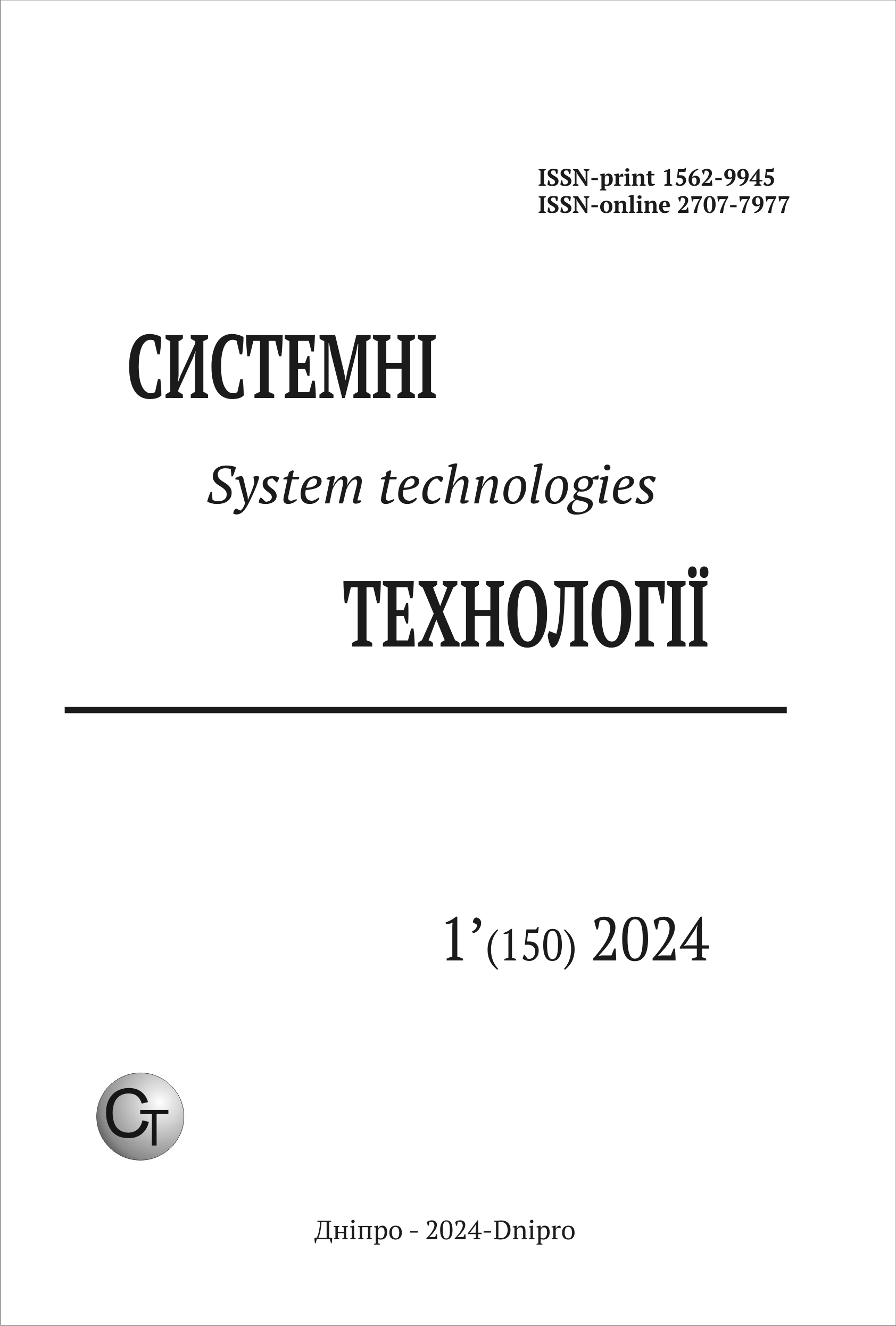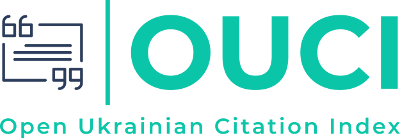ВИКОРИСТАННЯ НЕЧІТКОЇ ЛОГІКИ ДЛЯ АНАЛІЗУ СОЦІАЛЬНО-ЕКОНОМІЧНОГО ДОБРОБУТУ НАСЕЛЕННЯ
DOI:
https://doi.org/10.34185/1562-9945-1-150-2024-06Ключові слова:
нечітка логіка, добробут населення, доходи домогосподарств, фаззифікація даних, лінгвістична змінна, критеріальна матриця.Анотація
Стаття розкриває новий підхід до аналізу добробуту населення за допомогою теорії нечітких множин. Мета дослідження полягає в розробці та застосуванні методології, заснованої на нечіткій логіці, для кількісної оцінки та аналізу соціально-економічного добробуту громадян. Основне завдання включає розробку методологічного підходу, побудову моделі для оцінки добробуту та розробку рекомендацій для планування соціально-економічних стратегій. В якості рішення пропонується використання нечіткої логіки, яка дозволяє краще враховувати неоднозначності та невизначеності в даних про добробут населення. У дослідженні представлено детальний опис розробле-ної моделі, що включає формування лінгвістичних змінних, визначення терм-множин і розробку правил виводу. Ці компоненти дозволяють моделі адаптуватися до різних умов і типів даних, забезпечуючи гнучкість і широке поле застосування методу. Дослі-дження також підкреслює важливість аналізу чинників, що впливають на добробут населення, таких як доходи домогосподарств, витрати на медикаменти та харчуван-ня, рівень освіти, стан житла, значення особистого господарства та інші. Автори вказують на динамічність впливу цих факторів і на необхідність їх регулярного онов-лення для підвищення точності прогнозів. Результати дослідження демонструють, що розроблена модель забезпечує більш точні та обґрунтовані прогнози рівня соціаль-но-економічного добробуту порівняно з традиційними методами. Отримані дані мо-жуть бути використані для планування соціально-економічних стратегій на мікро- та макрорівнях, сприяючи розробці ефективних заходів для підвищення добробуту насе-лення. Стаття вносить значний вклад у розвиток методів аналізу соціально-економічного добробуту, показуючи потенціал нечіткої логіки як інструменту для під-вищення точності прогнозування та розробки обґрунтованих соціально-економічних політик.
Посилання
Boguslavska, S.I. (2021). Transformatsiia rehionalnoho menedzhmentu v umovakh hlob-alizatsii dlia zabezpechennia staloho rozvytku rehioniv Ukrainy [Transformation of regional management in the conditions of globalization for maintenance of sustainable development of regions of Ukraine]. Business Inform,
, 90-97.
Kapinos, H., Larionova, K. (2023). Problemy upravlinnya stalym rozvytkom ukrayiny v umovakh viyny [Problems of managing the sustainable development of Ukraine in conditions of war]. Modeling the development of the economic systems, 1, 93-103. DOI: https://doi.org/10.31891/mdes/2023-7-13.
Makedon, V.V., Makovetsʹka, A.O. (2023). Informatsiyne zabezpechennya ekonomichnoyi bezpeky pidpryyemstv v umovakh rynkovoyi nestabilʹnosti. [Information provision of eco-nomic security of enterprises in conditions of market instability]. Mizhnarodnyy naukovyy zhurnal "Internauka". Seriya: "Ekonomichni nauky", 12. DOI: https://doi.org/10.25313/2520-2294-2023-12-9477.
Olshanska, O.V., Khmelevskyi, M.O. (2021). Rehionalno-systemna orhanizatsiia eko-nomiky yak chynnyk realizatsii tsilei staloho rozvytku [Regional and systemic organization of the economy as a factor in realizing the goals of sustainable development]. Imperatyvy eko-nomichnoho zrostannia v konteksti realizatsii hlobalnykh tsilei staloho rozvytku, 17–21.
Ashok, S., Krishna, S., Ponnambalam, S. (2023). Fuzzy Logic-Based Multi-Objective Decision-Making Model for Design Evaluation in an Open Innovation Environment. Innovation Analytics. DOI: 10.1142/9781786349989_0011.
Doroudi, H., Goudarzi, F., Kandel, B.K. (2022). The effect of the competitiveness index on economic growth, with an emphasis on institutional and structural variables: 10 selected countries exporting oil. Philosophy, Economics and Law Review, 2, 2, 85-95. DOI 10.31733/2786-491X-2022-2-85-95.
Hernández-Hernández, M., Alfonso Bonilla Cruz, L., Cobián-Romero, L. (2023). Improvement of Validated Manufacturing Processes with Fuzzy Logic. IntechOpen. DOI: 10.5772/intechopen.113302.
Makedon, V., Hetman, O., Yemchuk, L., Paranytsia, N., Petrovska, S. (2019). Human resource management for secure and sustainable development. Journal of security and sustainability issues, 8(3), 345-354.
Mendez, G.M., Lopez-Juarez, I., Montes-Dorantes, P.N. and Garcia, M.A. (2023). A New Method for the Design of Interval Type-3 Fuzzy Logic Systems With Uncertain Type-2 Non-Singleton Inputs (IT3 NSFLS-2): A Case Study in a Hot Strip Mill. IEEE Xplore, 11, 44065-44081. DOI: 10.1109/ACCESS.2023.3272531.
Peckol, J.K. (2021). Introduction to Fuzzy Logic. Nashville, TN, Estados Unidos de América: John Wiley & Sons.
Sabounchi, M., Wei-Kocsis, J. (2022). FLTRL: A Fuzzy-Logic Transfer Learning Powered Reinforcement Learning Method for Intelligent Online Control in Power Systems. Explainable AI and Other Applications of Fuzzy Techniques. Proceedings of the 2021 Annual Conference of the North American Fuzzy Information Processing Society, NAFIPS 2021, Springer, Cham. DOI: https://doi.org/10.1007/978-3-030-82099-2_33.
Servin, C., Becker, B., Eaton, E., Kumar, A. (2023). Fuzzy Logic++: Towards Developing Fuzzy Education Curricula Using ACM/IEEE/AAAI CS2023. Fuzzy Information Processing 2023 Lecture Notes in Networks and Systems. 184-193. DOI: 10.1007/978-3-031-46778-3_17.
Shang, К., Hossen, Z. (2013). Applying Fuzzy Logic to Risk Assessment and Decision-Making. Casualty Actuarial Society, Canadian Institute of Actuaries, Society of Actuaries.
Sivanandam, S.N. Sumathi, S.D.S. (2006). Introduction to Fuzzy Logic using MATLAB. Springer-Verlag Berlin Heidelberg.
Завантаження
Опубліковано
Номер
Розділ
Ліцензія
Авторське право (c) 2024 Системні технології

Ця робота ліцензується відповідно до ліцензії Creative Commons Attribution 4.0 International License.















